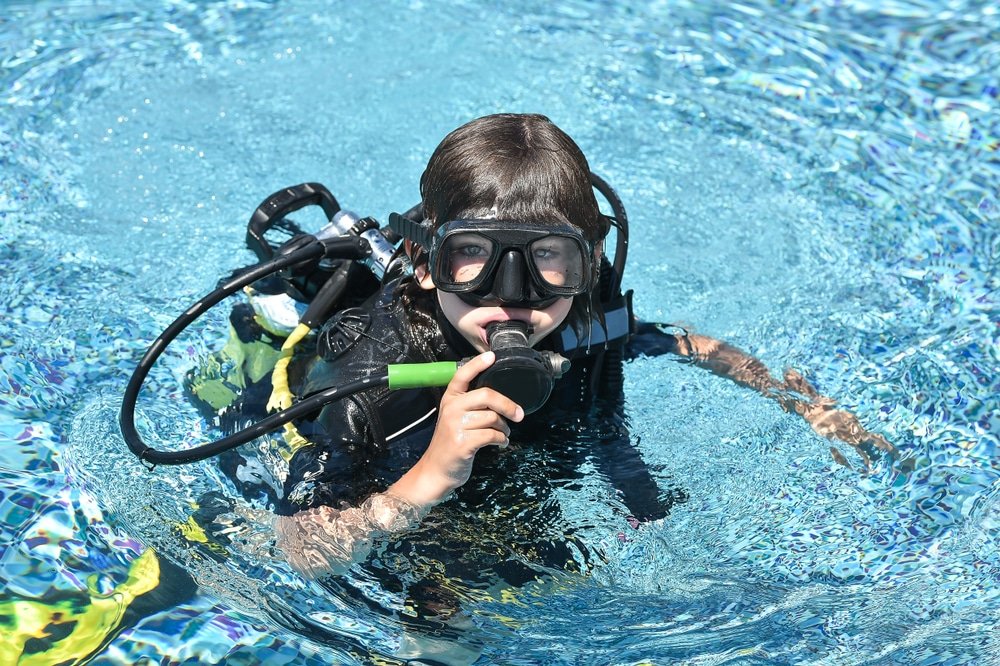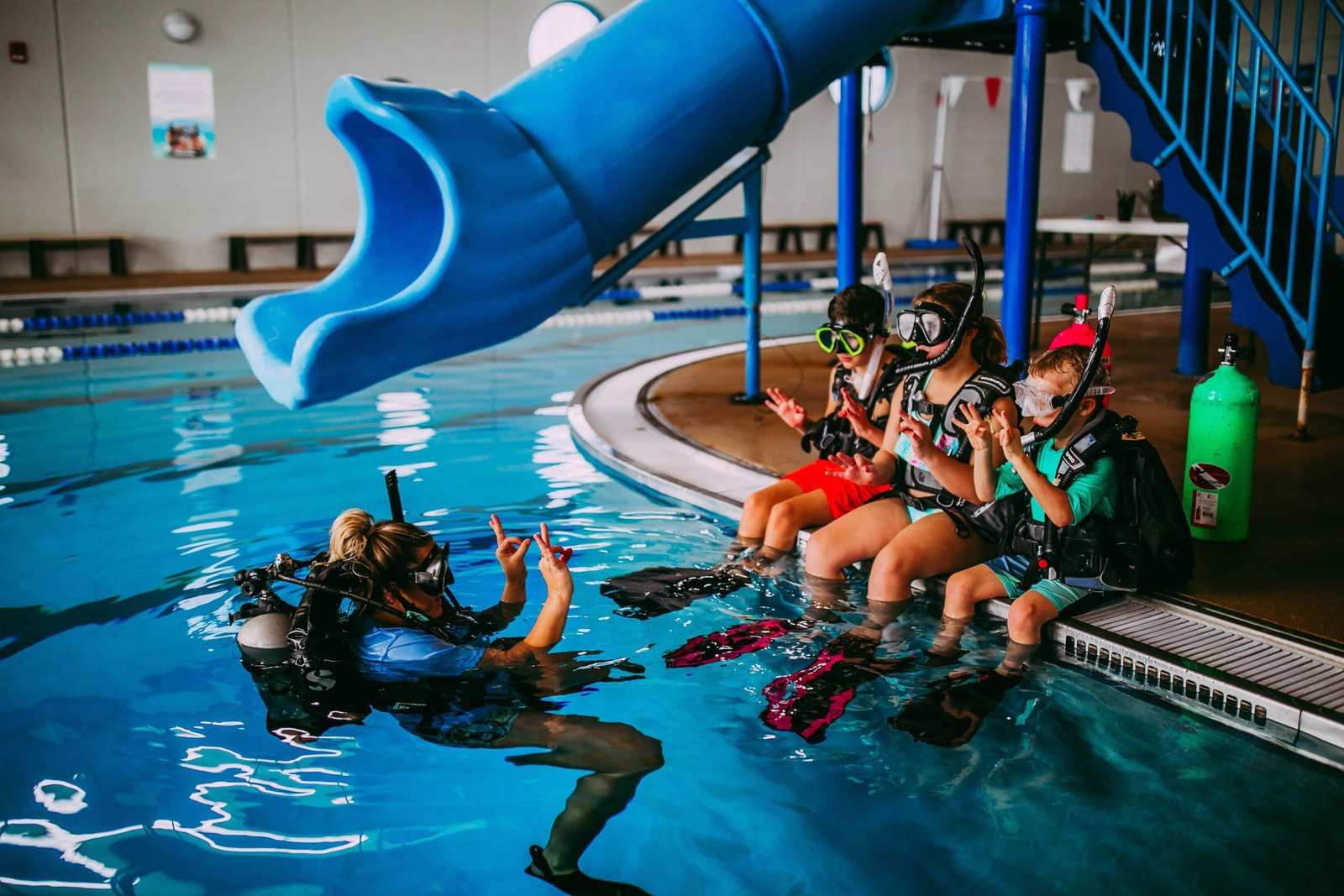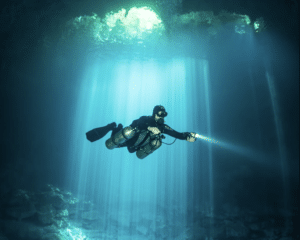For many parents, there comes a moment when their child looks up and says, “I want to go scuba diving.” Maybe they’ve seen a documentary about ocean life, maybe they’ve watched you suit up for a dive, or maybe they’re just naturally drawn to adventure. Whatever sparked their interest, it’s an exciting thing to hear—and an even more exciting thing to consider. But it also raises an important question: Are they ready?
Scuba diving is more than just a cool activity—it’s a responsibility. It demands focus, maturity, physical comfort in the water, and the ability to stay calm in an entirely new environment. So how can you tell if your child is truly ready to take their first breaths underwater?
Let’s explore what readiness really looks like when it comes to kids and scuba diving.
Confidence Starts in the Water
The very first thing to look at is your child’s comfort level in the water. A strong swimmer who feels relaxed in pools, lakes, or even the ocean already has a head start. These kids are used to floating, kicking, and controlling their breathing. They’ve likely already learned how to stay calm if they get splashed in the face or accidentally swallow water.
But if your child is still learning to swim or shows signs of anxiety in deeper water, that’s a sign to slow down. Scuba diving isn’t about forcing someone to overcome fear—it’s about building on a foundation of confidence and curiosity. There’s no rush. Many future divers start with swimming lessons, pool play, and snorkeling before they ever strap on a tank.
Maturity Matters More Than Age
While organizations like PADI offer junior certifications starting at age 10, age isn’t everything. Some 10-year-olds are calm, focused, and attentive. Others still struggle to stay on task or follow detailed instructions. Scuba diving involves learning how to use technical equipment, remembering safety procedures, and understanding how to communicate without speaking. That’s a lot for a young brain to process.
A good indicator of readiness is how well your child handles other structured activities. Do they do well in school, music lessons, or team sports? Are they able to focus for extended periods and follow directions the first time? These traits often translate well to dive training.
Of course, it’s not about perfection. Every kid gets distracted sometimes. The key is that they’re able to refocus when it counts—and that they understand the importance of paying attention when safety is on the line.

Handling the Unknown
One of the magical things about scuba is that it introduces us to a world we’ve never seen before. But for kids, that magic can also come with a little uncertainty. The feeling of breathing through a regulator, the pressure in your ears, the weightlessness of floating underwater—it’s all new.
That’s why emotional resilience is so important. Kids who respond to new challenges with curiosity—asking questions, exploring solutions, and staying calm—tend to do well in scuba training. On the other hand, children who get easily overwhelmed or frustrated may find the experience more stressful than fun.
The good news? Emotional resilience can be built. Activities like hiking, rock climbing, snorkeling, and even traveling help kids stretch their comfort zones in small, manageable ways. These experiences help prepare them for bigger adventures—like diving.
Interest Should Come From Them
You might be a seasoned diver who dreams of sharing this passion with your child—and that’s amazing. But the desire to dive should ultimately come from them, not you.
Kids who are ready often talk about the ocean constantly. They’re fascinated by fish, sharks, turtles, coral reefs. They flip through dive magazines or ask to try on your gear. These are great signs that they’re not just willing—they’re excited.
If your child seems curious when you mention diving but hasn’t brought it up on their own, try sparking their interest. Watch a documentary together, visit an aquarium, or take a snorkeling trip. Let them discover the ocean on their terms. If they’re not into it yet, that’s okay. Interests evolve with time.
Try Snorkeling First
Before scuba diving, many kids benefit from practicing with a snorkel. Snorkeling teaches slow, controlled breathing—something every diver needs to master. It also helps children get used to being face-down in the water, handling a mask, and staying calm when they encounter unexpected things (like a splash of saltwater or a curious fish).
If your child is already comfortable breathing through a snorkel and can calmly float on the surface while observing what’s below, that’s a major step toward scuba readiness. If they still get panicky when water enters the mask or forget to breathe slowly, more snorkel practice is the way to go.
And the best part? Snorkeling is easy to do as a family. You can practice in a pool or take weekend trips to nearby beaches or lakes. It’s low-pressure, fun, and incredibly educational.

A Love for Nature Goes a Long Way
Scuba diving is about more than just adventure—it’s about connection. Kids who love animals, respect the natural world, and ask thoughtful questions about marine life tend to develop a strong sense of environmental stewardship. These are the kinds of divers who are careful not to touch coral, who swim gently near sea turtles, and who come home eager to protect the ocean.
If your child doesn’t show much interest in nature or animals yet, that’s not necessarily a dealbreaker. But it might be a sign to introduce more outdoor experiences first—like nature walks, tide pool visits, or camping trips. Helping them develop a connection with the natural world can make scuba diving feel more meaningful down the road.
What About You?
This may be about your kid—but let’s talk about you for a moment.
Your comfort and confidence in the process play a huge role in how your child experiences diving. If you’re enthusiastic, well-informed, and relaxed, your child will likely pick up on that. But if you’re nervous, overly cautious, or unsure, those feelings can influence their outlook too.
It’s totally normal to have questions or concerns. Will they be safe? Will they panic? Will they remember what they learned? The best way to ease those concerns is to talk to a certified dive instructor who works with kids. They can walk you through the process and help you feel prepared to support your child at every step.
And remember: there’s no rush. If you’re not quite ready to sign off on it, it’s okay to wait until you are.
Not Quite There Yet? That’s Okay
Maybe after reading all this, you’ve realized your child isn’t quite ready yet. That’s not a failure—it’s the beginning of the journey.
There are so many ways to build toward scuba readiness without rushing into certification:
– Swim classes: Build strength, control, and confidence in the water.
– Snorkeling trips: Practice breathing, buoyancy, and marine observation.
– Bubblemaker programs: Offered by PADI for kids aged 8 and up, this pool-based intro lets them try scuba gear in a safe, shallow setting.
– Nature exploration: Help them fall in love with the ocean before diving into it.
Every diver starts somewhere. Even the pros had to learn to swim, to float, to breathe calmly. Give your child the gift of preparation and they’ll enjoy diving even more when the time comes.
So, Is Your Kid Ready?
Here’s a simple way to check. Reflect on what you’ve observed and ask yourself:
– Do they love the water?
– Are they focused and attentive?
– Do they handle new situations calmly?
– Are they genuinely interested?
– Are they old enough?
– Can they snorkel with ease?
– Do they show respect for nature?
– Are you comfortable with them diving?
If the answers are mostly yes, congratulations—you may have a future dive buddy on your hands.
If the answers are “not yet,” that’s okay too. Every step your child takes toward scuba—whether it’s snorkeling, learning about marine life, or mastering a swim stroke—is a step in the right direction.
Conclusion
Introducing your child to scuba diving can be one of the most rewarding adventures you share together. It opens up a new world of wonder, teaches responsibility and respect for nature, and can even influence the way they see the planet.
But readiness matters. By paying attention to their confidence, maturity, curiosity, and comfort level, you’re setting them up for a safe and unforgettable experience.
When they’re ready—and when you’re ready—the ocean will be there, waiting with open arms.


